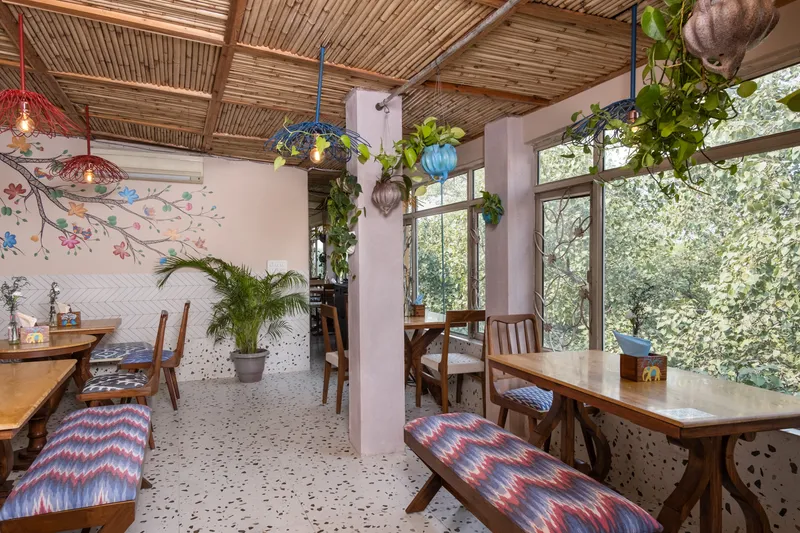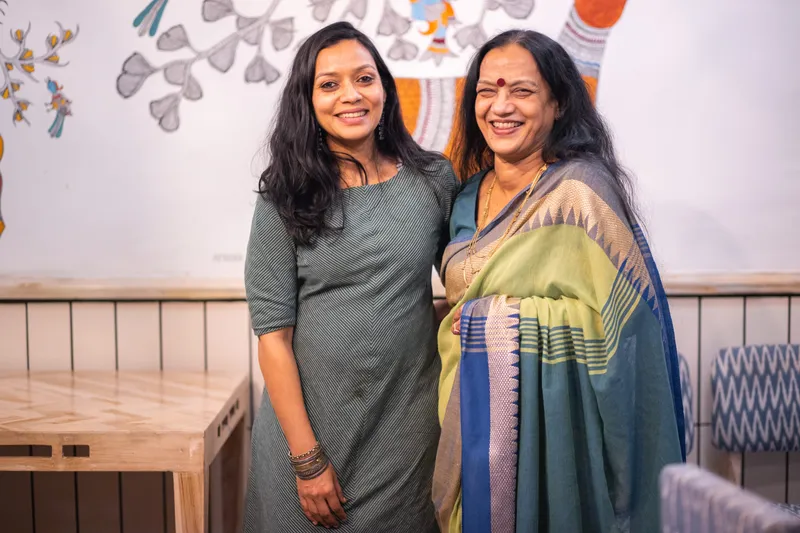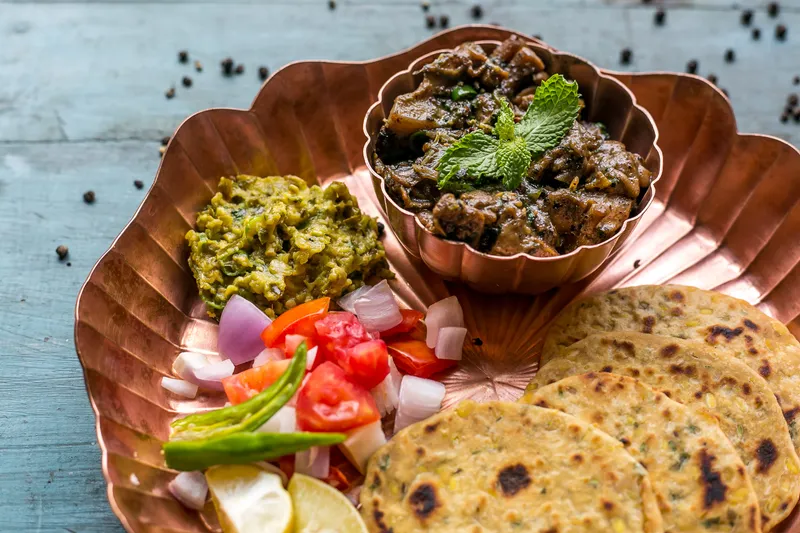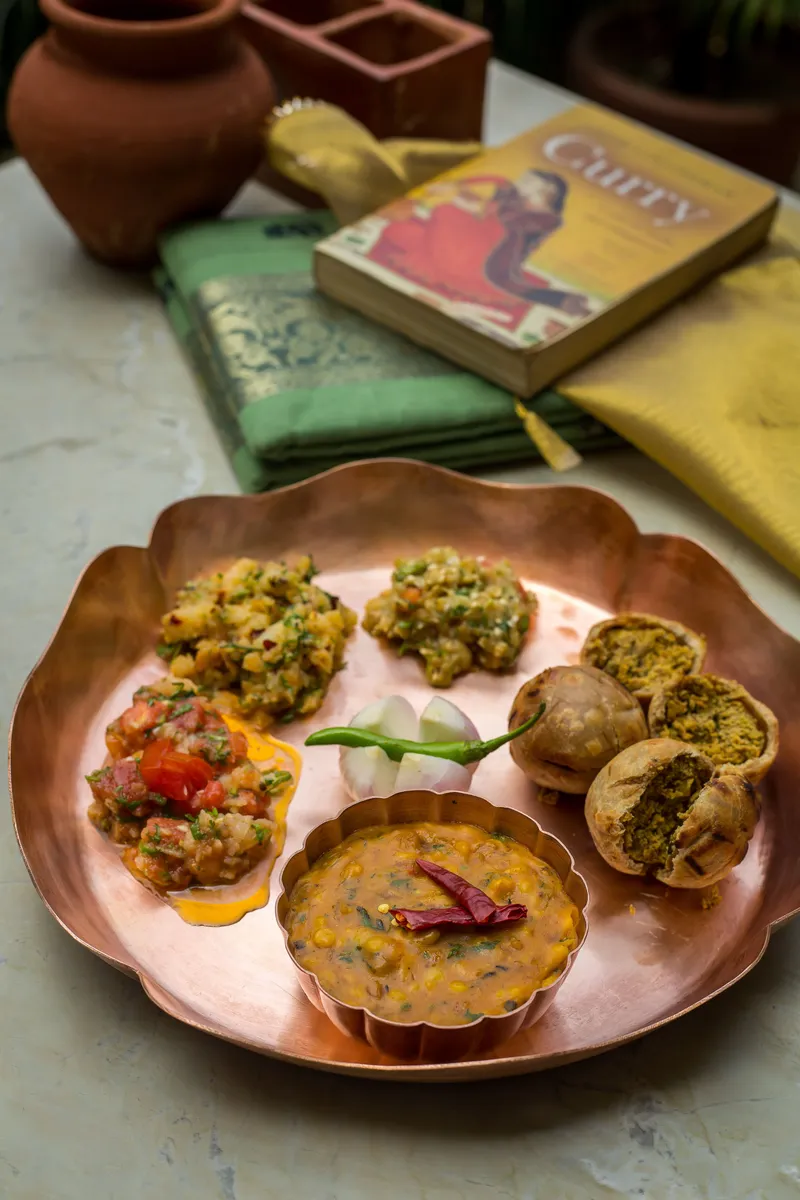With a focus on Bihari cuisine, The Potbelly gears up for its next phase of expansion
The Potbelly has been reviving and serving authentic Bihari cuisine for more than ten years. It now plans to expand to Mumbai, Goa, and Bengaluru.
For three years, The Potbelly operated as a small restaurant offering Bihari cuisine in Delhi’s Chanakyapuri, where it gained significant popularity.
Its big break came in 2015 when the Resident Commissioner of Bihar invited The Potbelly founder Puja Sahu to open an outlet in Bihar Niwas in Delhi, the first such independent restaurant to be housed in a state-owned establishment.
The Potbelly has since been in expansion mode. Sahu, who launched the venture in 2012 with an initial investment of Rs 30 lakh, attributes the brand’s success to its focus on serving authentic cuisine of Bihar.
Today, The Potbelly has four outlets, with two located in Delhi, one in Gurugram, and one in Patna.
These outlets have garnered significant popularity for the niche they serve, inspiring the brand to plan to open restaurants in other parts of the country.

Potbelly's Chanakyapuri outlet
“We plan to open a premium dining restaurant for Bihari food in Mumbai by March 2024, followed by a similar venture in Goa,” Sahu tells SMBStory.
Despite facing pandemic-related challenges that led to the closure of its Bangalore outlet, Sahu plans to reopen in the city due to its existing customer base.
According to a Covid assessment report prepared by the National Restaurant Association of India, 25% of restaurants have permanently shut down after the COVID-19 pandemic.
The Potbelly has also managed to return to its pre-pandemic level. The company’s revenue has seen a year-on-year growth of 58% for FY23 and over 100% for FY22. The founder declined to disclose the exact revenue figure.
In the next two to three years, The Potbelly hopes to open eight outlets across the country.
The first serious Bihari restaurant
Sahu began her entrepreneurial journey at 21. Her love for designing clothes led her to open a boutique in Delhi's Shahpur Jat area. The venture soon found success.
However, after dedicating 12 years to designing clothes, she began to feel a sense of monotony in her work and decided to explore other avenues.
Drawing inspiration from her mother's cooking, she decided to introduce the authentic flavours of her hometown, Muzaffarpur in Bihar, to the rest of the country.

Puja and her mother, Mamta Sahu
“Despite initial skepticism about whether it would work or not, I took a leap of faith. The first six months were slow, but once the word began to spread, people started coming in,” she shares.
The menu offers an array of vegetarian and non-vegetarian dishes along with the famous litti-chokha. Mustard-based-gravy fish dishes, as well as renowned mutton preparations like Champaran and Ahuna mutton made in earthen pots, are some of the loved delicacies, the founder says.

Food at The Potbelly
The restaurant also serves authentic snacks such as sabudana pakora, and ghoogni chura. Over the years, the menu has expanded significantly.
The Potbelly distinguishes itself with a light and cool ambiance, deviating from the traditional rural settings commonly associated with regional restaurants.
"I wanted to convey that Bihari cuisine can be presented in a sophisticated setting and that it has a classy essence," she says. The dishes range in price from Rs 220 to Rs 550.
Staying in the game
Sahu has managed to steer The Potbelly toward profitability despite the many challenges in the industry,
The failure rate of restaurants is very high and it can be attributed to various factors, says Anurag Katriar, Founder of Indigo Hospitality Pvt Ltd and former President of the National Restaurant Association of India (NRAI).
“Firstly, the capital cost of setting up a restaurant is significantly high, and the absence of input tax credit further increases this burden by 20%,” he says. Operating expenses like rent and manpower constitute a substantial portion of the overall costs, making the restaurant susceptible to revenue fluctuations.
Another factor, he says, is the low-entry barrier. “Many people without an understanding of the industry's challenges venture into the business simply because they have a friend who is a chef or they perceive it as a glamorous industry,” he says. Such lack of expertise and preparation can lead to poor management decisions and ultimately, failure.
With substantial expenses like kitchen costs, rent, utilities, and staff salaries, it takes around two years for restaurants to break even.

The Potbelly achieved a breakeven point within a year of opening its first small restaurant. However, for the successive outlets, it managed to become profitable after two years of opening each new outlet.
The business has remained bootstrapped, reinvesting profits to fuel growth, according to the founder.
Sahu says that The Potbelly’s commitment to consistency has helped it grow. It has also taken control of the ingredients used in the dishes, such as asking the vendors to grind and roast Sattu (gram flour) to their liking, ensuring a unique taste.
However, building a brand centered around authenticity comes with its fair share of challenges. Sahu emphasises that hiring the right people, who embrace the culture and are willing to work diligently to preserve the full authenticity of the cuisine, has been difficult.
The restaurant invests in training new chefs rather than relying on inexperienced staff, ensuring consistency across all outlets. Most of the staff and chefs are hired from the villages in Bihar.
The Potbelly employs a total of 90 workers.
The founder says about the expansion, "I want to do justice to the quality of food we serve and do not want to expand very rapidly."
Edited by Affirunisa Kankudti







